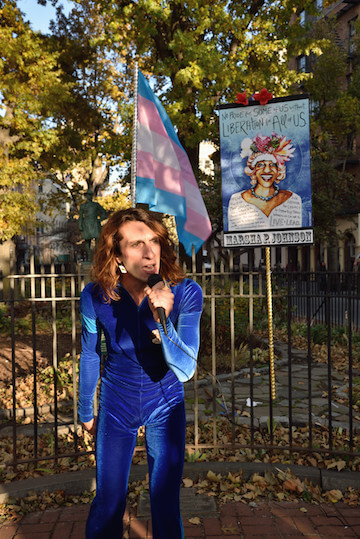In a unanimous ruling, the Supreme Court of Canada has decriminalized prostitution, making that nation the second to go this route.
The court’s December 20 decision relied heavily on social science data introduced into evidence that found the safety of sex workers is best protected by allowing them to conduct business in facilities where negotiations over condom use, rates, and expectations are carried out in a calm and ordered environment. Criminalizing prostitution forces sex workers into remote locations outside the public eye that make an initial encounter too hasty for them to adequately protect themselves.
Chief Justice Beverley McLachlin, in her opinion for the court, wrote that the Canadian statute under challenge has had a “negative impact on the safety and lives of street prostitutes, who are prevented from screening potential clients for intoxication and propensity to violence.” The law “is a grossly disproportionate response to the possibility of nuisance caused by street prostitution,” she added.
The isolation of sex workers has also been deepened by laws prohibiting drivers, receptionists, and supervisors to work with them and thereby profiting from the “avails” of prostitution. The court ruled that a law designed to discourage pimps and other exploitative types of relationship can’t be written so broadly that it prevents support structures to enhance the safety and well-being of sex workers.
“Sex workers around the world are thrilled by the decision,” said Chanelle Gallant of Maggie's: Toronto Sex Workers Action Project in telephone interview. “Canada has become second country after New Zealand to decriminalize sex work. This is an incredible win for safety, justice, and equality in Canada and in the world.”
Gallant emphasized that it is also a victory for queers, noting that among the founders of the LGBT movement were sex workers, including, she said, Sylvia Rivera and Marcia P. Johnson. The two were prominent radical leaders in the years after Stonewall who demanded rights for both the transgender community and for sex workers, who were constantly arrested and too often assaulted and raped in the city jails. The policing of prostitution remains a problem for transgender women, in particular, who are often profiled for harassment and arrest. “Fearless transgender women,” Gallant said, came forward as leaders in the sex workers’ rights movement over the years.
The court’s decision was suspended for one year, and Robyn Maynard, an outreach worked for Stella, l’amie de Maimie, a Montreal group representing sex workers, insisted that Parliament give sex workers a prominent place at the table while drafting the new laws mandated by the court. Chloe, a sex worker and advocate, insisted that “sex workers be at the table for all decisions made about our lives.” In a statement issued by Maggie’s, she stated, “We will continue to fight for full equality and justice and oppose any attempts to criminalize any part of the sex industry, including our clients.”
The groups are concerned that Parliament will introduce the Nordic model that decriminalizes the sex worker, but lays out stiff fines for clients, creating the same incentives that drive the industry underground and create safety issues that the current regime has. It is this halfway measure that the New York Times endorsed in a recent editorial.
The court’s unanimity did not spring up in a vacuum. The justices were responding to evidence introduced in the trial court, including friend of the court briefs filed by groups such as the Secretariat for UNAIDS.
“Where sex workers are able to assert control over their working environments and insist on safer sex, evidence indicates that HIV risk and vulnerability can be sharply reduced,” UNAIDS stated. “Laws, policies, discriminatory practices, and stigmatizing social attitudes drive sex work underground, impeding efforts to reach sex workers and their clients with HIV prevention.” Criminalizing sex work, the United Nation’s HIV organization argued, fosters violence and “laws governing sex work and law enforcement practices are a central part of the violence experienced by sex workers. Sex workers are regarded as easy targets for harassment and violence because they are considered immoral and deserving of punishment.”
UNAIDS, in its filing, noted that its conclusions are based on careful study of the experience from 30 years of the HIV epidemic.
The Canadian high court decision comes out of a case that began in 2007, and it challenges the prevailing view that pimps and johns alone create the degradation and trafficking tragedy often associated with sex work. Government policy, the court found, plays a key role, and the Supreme Court concluded that appropriate policies from the government can enhance safety and prevent many harms. Blanket prohibition and condemnation in broadly drawn criminal laws, it found, only heighten the problems and discourage solutions.
In New York City, Sienna Baskin of the Sex Workers Project was “thrilled” by this “landmark decision” that recognizes “the role of the state in making a prostitute more vulnerable to violence” and that the state cannot regulate against nuisance “at the cost of the health, safety, and lives” of sex workers. “We stand in solidarity with sex workers in Canada,” she said, “and hope that this decision leads to global interest in a less punitive approach to sex work.”


































